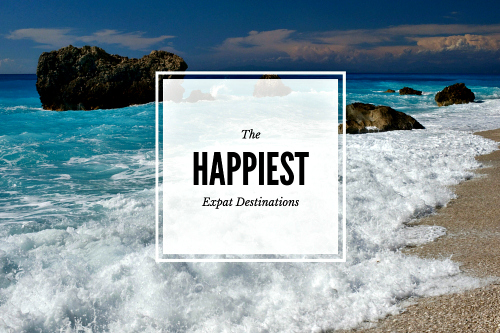When Bhutan’s use of “gross national happiness” as their main development indicator began gaining worldwide attention roughly a decade ago, it was a new and rather surprising concept. However, over the last few years, there has been more and more discussion around the world, both in the media and in political circles, about happiness and quality of life.There has been an increasing amount of recognition of the fact that these may be as important indicators of progress and well-being for the people of a country as GDP, possibly even more so.
The first Better Life Index was released by the Organisation for Economic Co-operation and Development (OECD) in 2011, and looked at a variety of factors that affected quality of life, including safety, social support, health and life satisfaction or, in other words, happiness. Around one year later, the United Nations released its first World Happiness report, which focused more closely on happiness, based on similar parameters. While both studies have their flaws and limitations, they have spurred on a much-needed shift in emphasis from GDP to other factors that affect people’s lives.
Among expats too, research has shown that the majority relocate not for better pay, but in search of new challenges and a better quality of life, both of which could essentially be interpreted as a search for more happiness.
According to the results of HSBC’s Expat Explorer 2015 survey, 61% of expats say they haven’t experienced an immediate increase in their incomes since moving abroad; in spite of this, most are happy with their quality of life, their fulfillment at work, their physical health, and their relationships with their partners, and a considerable percentage have seen improvement in these areas. Clearly, for expats a country’s happiness levels are more important than its GDP alone.
A look at the countries in the 2016 World Happiness Report shows that the countries at the top are all popular expat locations, and those at the bottom are places where most expats would be reluctant to live. Here are the ten happiest countries on the list.
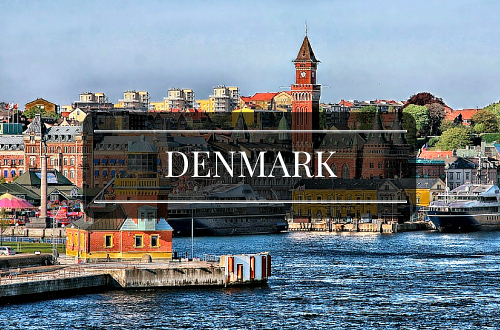
Denmark tops the list of countries in the World Happiness Report 2016 Update, and scores reasonably well on all parameters. However, this Scandinavian country has the best scores when it comes to life satisfaction and work-life balance in particular. This seems to be a common theme among the Scandinavian and Nordic countries, but Denmark absolutely tops the charts.
The country has a well-developed, mixed economy, and its efficient welfare state model ensures that everyone has access to high quality education and healthcare, as well as excellent infrastructure in all other areas. Denmark has among the highest per capita incomes in the world, and although there is considerable income inequality, it is less than in most other countries and social mobility is high.
Denmark also shows high community involvement, with high levels of voter participation and civic engagement, and a whopping 95% of people saying they had someone to rely on (as per the Better Life Index report). Expats too love living in Denmark, and find that in spite of the challenges of the language and communication in general, they are easily able to integrate and enjoy all the things that the Danes love about their country.
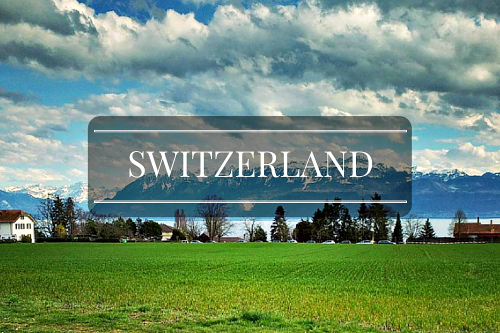
Switzerland is another country that consistently places near the top of reports examining levels of happiness and life satisfaction. The country is one of the wealthiest in the world, with high income levels, high job security, and low levels of unemployment. However, it takes a lot more to make people happy – Switzerland also has excellent public infrastructure, high levels of community involvement, and most Swiss people have a strong social support network.
Expats too find that they are able to reap many of these benefits, and, very importantly and unusually for a place where career and earning prospects are so good, they also say that they find it easy to strike a balance between work and personal life. Settling into the country can be a bit difficult because of the notorious Swiss reticence to engage; however, most expats find that although friendships can be slow to form, they are usually deep and lasting. Switzerland is known for its great beauty, and most expats say that they are fitter and healthier after moving here.
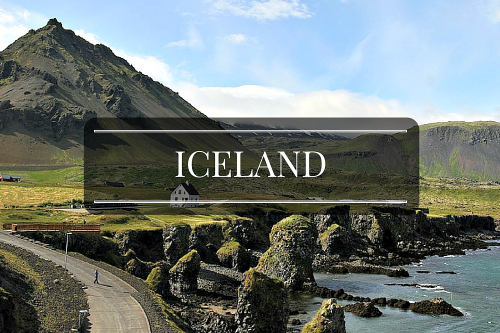
Iceland isn’t usually thought of as an important expat destination. However, the fact is that country has developed a large (and happy) expat community, especially over the last few years and particularly in the urban, economic centers. The work-life balance here isn’t the best, but in spite of this, levels of life satisfaction are among the highest in the world.
The environment is beautiful and unpolluted, infrastructure is well-developed and accessible to everyone, the economy is thriving and job security is high, and both locals and expats feel extremely safe here. Levels of civic engagement are only moderate in Iceland, but on a personal level, people are much more engaged with each other, and report extremely strong social support networks. The country also has a vibrant and thriving cultural life, with high levels of freedom and innovation. The weather is probably the one thing that expats here struggle with, especially the long, dark winters, but in almost every other way, this is a highly underrated expat paradise.
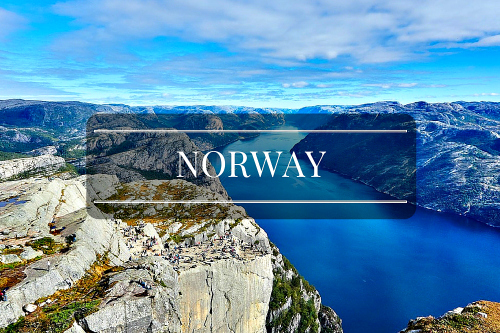
Norway is one more Scandinavian country in the happiest top ten, and ranks above average in almost every parameter. On the OECD’s Better Life Index, Norway actually places second, behind only Australia. Once again, this is a well-developed, modern nation, with a stable market economy, among the highest income levels in the world, and a welfare state approach that provides universal healthcare and an extensive social security system.
Norway reports among the highest levels of life satisfaction in the world, as well as one of the best work-life balances. The country is also incredibly beautiful, with gorgeous countryside as well as cities that boast great architecture. Even the capital city Oslo, in spite of having the typical bustle and buzz of any capital city, is beautiful and offers easy access to nature and to a range of outdoor activities.
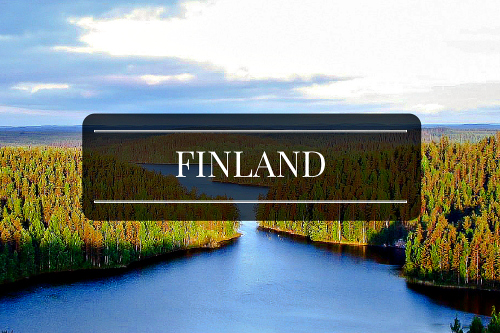
With neighbors like Norway and Sweden, it’s no surprise that Finland is also one of the happiest countries in the world. All three countries have a shared history and, even today, continue to have many cultural similarities.
Although Finland began industrializing fairly late in the 20th century, the country now has an advanced, stable economy, fairly high income levels, and well developed infrastructure.
The education system in particular is among the best in the world, and the healthcare system is also excellent. Finland follows the Nordic welfare state model, providing all its citizens with an excellent standard of living. The country scores well in terms of civil liberties, gender equality, press freedom, and general safety and stability. There is a fairly large expat population in Finland, who report high levels of satisfaction. Expats seem to particularly enjoy the Finnish countryside and love for outdoor activities, which they are able to enjoy because of the great work-life balance.
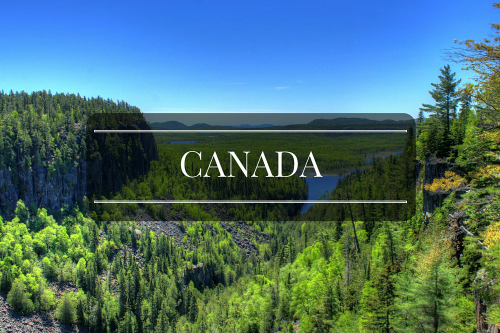
Canada has a global reputation for being progressive and inclusive in a multitude of ways. The recent eruption of ‘Trudeau-mania’ worldwide is a sort of crystallization of the way people around the world see Canada. Modern Canada’s embracing of cultural diversity has meant that it is now home to huge numbers of immigrants and expats from across the globe.
Expats here typically say that they find the country safe and the quality of life better than it was back home. They also report settling in quickly and easily, and feeling welcome regardless of race, religion, age, gender, nationality, and sexual orientation. Canada has high levels of community involvement and civic engagement, and its infrastructure is generally regarded as excellent, especially its healthcare system.

According to the Better Life Index as well as many of the expats who live there, the Netherlands has among the best work-life balances in the world, with less than 1% of the population reporting very long working hours. This is one of the reasons why, in terms of the family experience it offers, the Netherlands ranks among the top ten countries in the Expat Explorer 2015 report.
The country has a mixed economy, with among the highest per capita incomes in the world, an excellent healthcare system, and a thriving export sector – in terms of agricultural and food products, the Netherlands is secondly only to the United States. The Dutch are typically described as friendly and welcoming, even though they are somewhat reserved, and most expats find it very easy to settle into the country and the workplace.
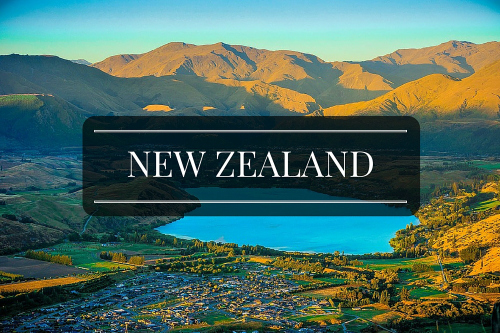
Of all the popular expat locations in the world, New Zealand is probably the country that offers the best in terms of life experience. In the overall rankings of the Expat Explorer report, the country placed second, and it made it to first place in the “Experience” rankings, based on factors such as quality of life, ease of integration, cultural experiences, family life, and safety.
In terms of careers and income levels too, New Zealand is among the best expat locations in the world. Due to the low levels of corruption and the high levels of economic freedom, it is also among the best places in the world to be an entrepreneur. The country scores particularly highly in the area of health according to the OECD Better Life Index, which also rates the levels of civic engagement and the quality of the environment very highly. Probably the only thing that makes expats in New Zealand unhappy is leaving – more than 70% of them stay in the country for more than five years.
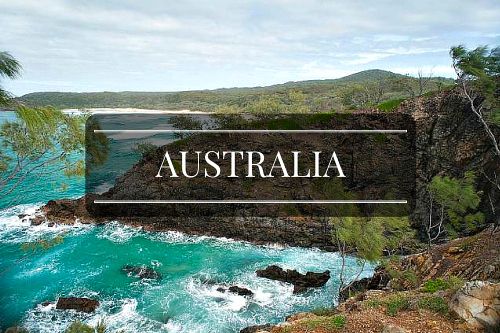
Although Australia places at the lower end of the top ten in the World Happiness Report, it’s at number one in the OECD Better Life Index. Work-life balance here is relatively poor, at least compared to the other countries in the top ten. However, most expats still say they have a better work-life balance here than they did at home, and on almost every other parameter, the country does even better.
Healthcare and the health of the population are both rated very highly, as is the quality of education, and Australia currently offers the best in terms of careers, incomes, and job security. Levels of satisfaction and happiness are very high, and this is also reflected in the Expat Explorer report, where Australia ranks fourth in terms of experience.
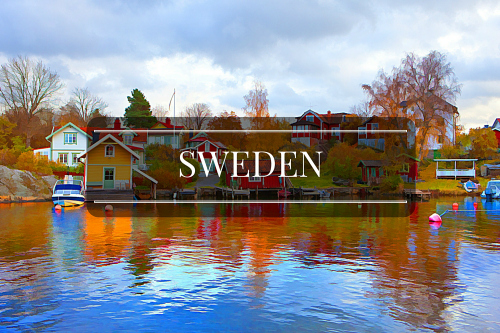
Sweden is the last Scandinavian country on the list, and like the rest, it is a highly developed country with a stable economy and a welfare system that provides high quality healthcare and education to all its citizens. Income levels here are among the highest in the world, and in addition, levels of gender equality are high, corruption levels are low, and the overall quality of life is high.
In terms of the expat experience, the aspect of life that expats in Sweden seem most happy with is the family experience it offers. Sweden offers among the best work-life balances in the world, as well as great education and childcare, generous parental leave, flexible working conditions, and a clean, safe, and beautiful environment that encourages outdoor activities and a healthy lifestyle.
Have you lived in any of the countries listed above? What is your favourite expat destination? Let us know in the comments!

